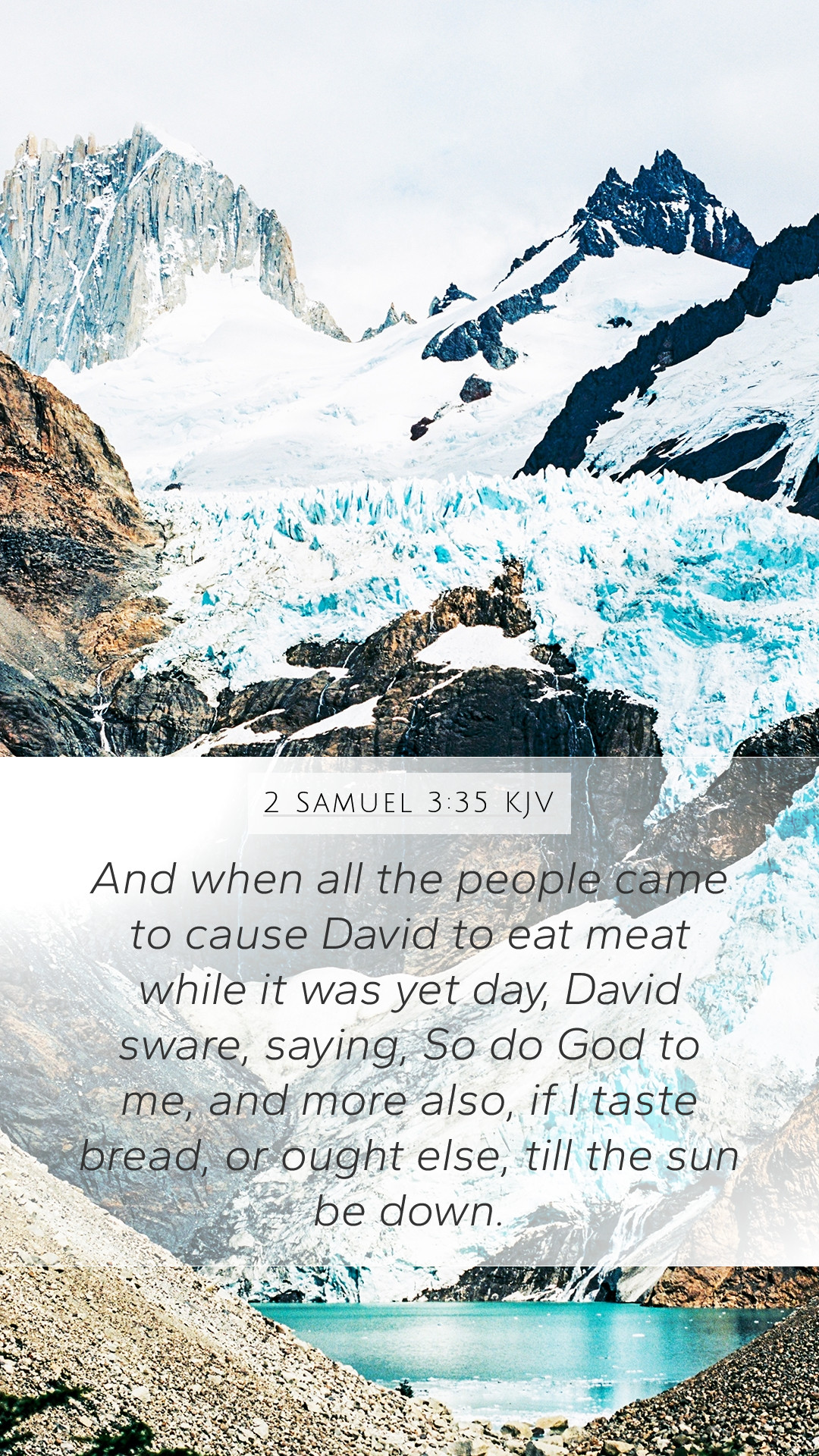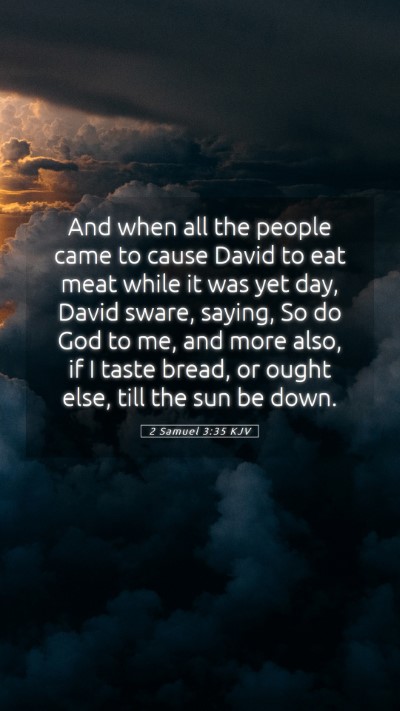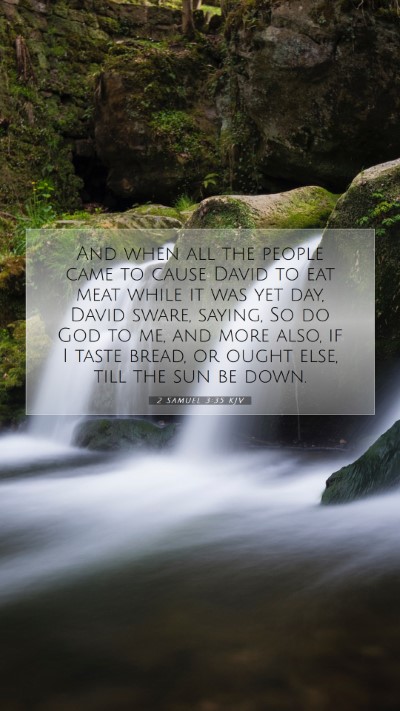Understanding 2 Samuel 3:35
Bible Verse: 2 Samuel 3:35
“Then all the people came to cause David to eat bread while it was yet day. But David swore, saying, ‘God do so to me, and more also, if I taste bread, or ought else, till the sun be down.’”
Context and Overview
This verse occurs in the aftermath of the assassination of Abner, the commander of Saul's forces. David, who had been mourning Abner’s death, sends a strong message about the seriousness of the situation and his own grief. The passage illustrates David's integrity and loyalty, emphasizing his disdain for overindulgence during a time of mourning.
Verse Interpretation
The actions of David in this verse can be understood through several layers of biblical interpretation, offering rich insights into leadership, mourning, and the covenant community.
1. David's Mourning
David's refusal to eat represents deep mourning not only for Abner but also for the unrest in the nation of Israel. His commitment to fasting underscores his solemnity regarding Abner's death, displaying a king whose heart is attuned to the welfare of his subjects.
2. Leadership Integrity
Commentators like Matthew Henry emphasize that David’s response sets a precedent for the moral responsibilities of leaders. David refused to indulge in festivities while his nation was in turmoil, showcasing the type of leader he aspired to be.
3. Symbolic Gestures
David’s oath serves as a powerful symbolic gesture. It reinforces the weight of his sorrow and emphasizes a serious cultural practice where sharing a meal represents unity and joy. Instead, he opted to abstain until proper respect was rendered to the deceased, revealing a profound sense of justice and propriety.
Commentary Insights
- Matthew Henry: Highlights the display of humility and submission in a leader who places national concerns above personal gratification.
- Albert Barnes: Points out that David’s action underscores the importance of mourning customs and the communal aspect of grieving, which resonates deeply with the societal norms of ancient Israel.
- Adam Clarke: Discusses the potential implications of David breaking bread during a time of sorrow. His refusal serves to delineate his character as one who values sincere emotions over social conventions.
Theological Implications
This verse reflects key theological themes, including the nature of godly leadership, the importance of mourning, and the role of the community in supporting one another in times of grief.
Community Mourning
David’s actions invite the community to join in mourning. Understanding the social fabric described in this context is vital for contemporary Bible study groups engaging with themes of support in grief. During online Bible studies, leaders can draw parallels with current practices of communal mourning and support.
Application to Daily Life
In the hustle of daily life, many may overlook the importance of mourning in community and individual contexts. This passage informs how to approach personal loss and collective grief, emphasizing that moments of mourning require respect and reflection.
Cross References
- 2 Samuel 1:17-27 - David laments the death of Saul and Jonathan.
- 1 Thessalonians 4:13 - Paul teaches about mourning in a hopeful manner.
- Ecclesiastes 3:1-4 - There is a time for everything, including mourning.
Conclusion
2 Samuel 3:35 serves as a powerful reminder of the values of leadership and integrity, as well as the communal aspects of mourning. Through this verse, individuals seeking bible verse explanations can gain insights into how biblical principles are relevant to both personal and communal circumstances today.


